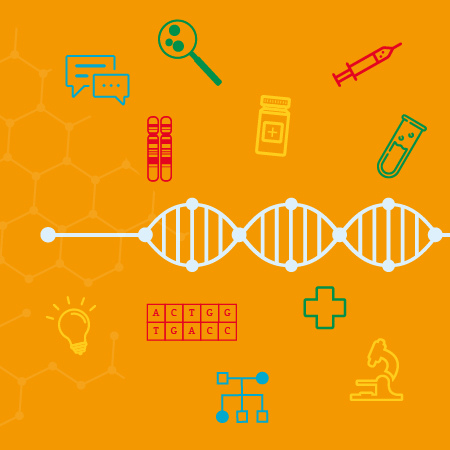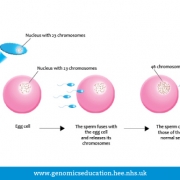Definition
Containing one copy of each chromosome. Human gametes (egg and sperm cells) are haploid, containing 22 autosomes and one sex chromosome.
Use in clinical context
During fertilisation, an egg and sperm (gametes) combine to form a cell that contains a complete complement of DNA. In humans, these gametes are haploid as they have one copy of each chromosome, contributed from each parent. The resulting cell is diploid as it has a complete complement of DNA: a total of 46 chromosome pairs.
Which copy of each parental chromosome that each egg or sperm gets is random so that all offspring, with the exception of monozygotic twins, will have a different combination of their parents’ chromosomes.
Related terms
Aneuploidy | Autosomes | Cell | Chromosome | Deoxyribonucleic acid (DNA) | Diploid | Sex chromosome




